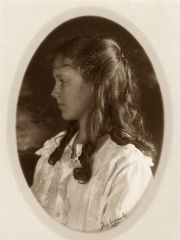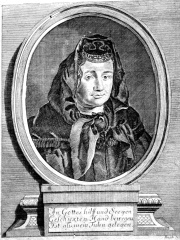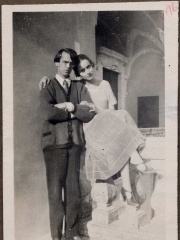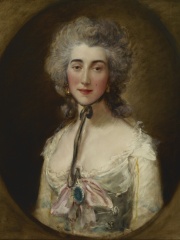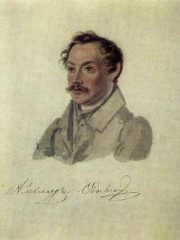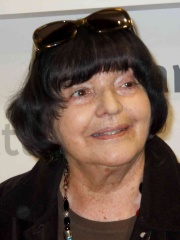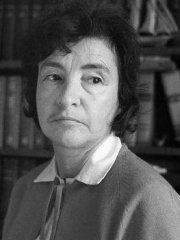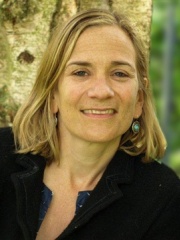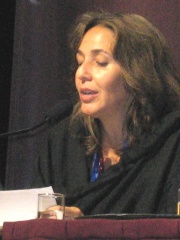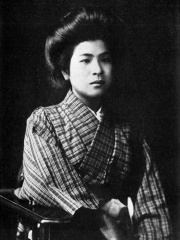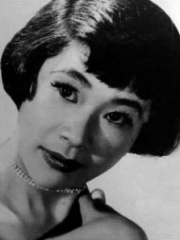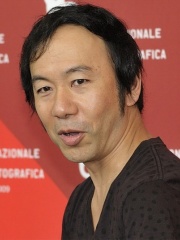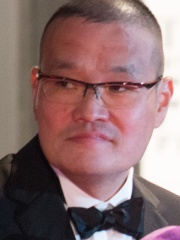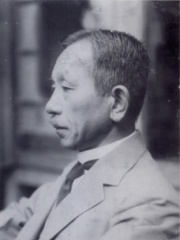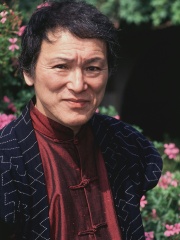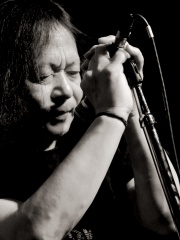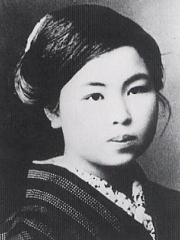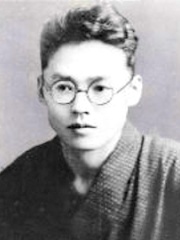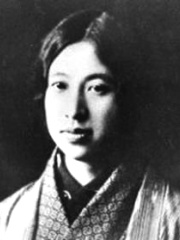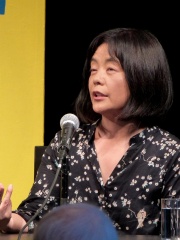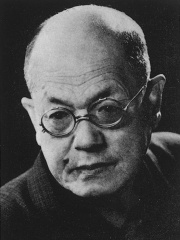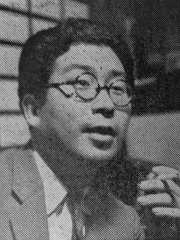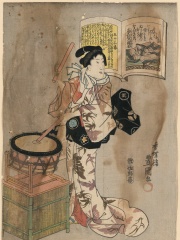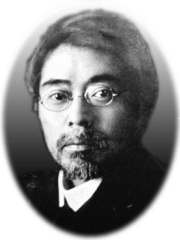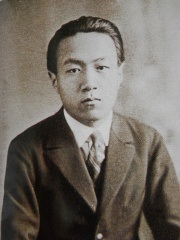WRITER
Yōko Ogawa
1962 - Today

 Yōko Ogawa
Yōko Ogawa
Yōko Ogawa (小川 洋子, Ogawa Yōko; born March 30, 1962) is a Japanese writer. Her work has won every major Japanese literary award, including the Akutagawa Prize and the Yomiuri Prize. Internationally, she has been the recipient of the Shirley Jackson Award and the American Book Award. The Memory Police was also shortlisted for the International Booker Prize in 2020. Read more on Wikipedia
Her biography is available in 28 different languages on Wikipedia (up from 23 in 2024). Yōko Ogawa is the 4,445th most popular writer (down from 4,366th in 2024), the 1,230th most popular biography from Japan (down from 1,156th in 2019) and the 93rd most popular Japanese Writer.
Memorability Metrics
Page views of Yōko Ogawa by language
Among WRITERS
Among writers, Yōko Ogawa ranks 4,445 out of 7,302. Before her are Kathy Acker, Josephine Diebitsch Peary, Anne Morrow Lindbergh, Joe Eszterhas, Justine Siegemund, and Nicholas Pileggi. After her are Vladislav Khodasevich, Grace Elliott, Alexander Odoevsky, Peter Carey, Hanna Krall, and Margarita Aliger.
Most Popular Writers in Wikipedia
Go to all RankingsKathy Acker
1947 - 1997
HPI: 56.95
Rank: 4,439
Josephine Diebitsch Peary
1863 - 1955
HPI: 56.95
Rank: 4,440
Anne Morrow Lindbergh
1906 - 2001
HPI: 56.94
Rank: 4,441
Joe Eszterhas
1944 - Present
HPI: 56.94
Rank: 4,442
Justine Siegemund
1636 - 1705
HPI: 56.94
Rank: 4,443
Nicholas Pileggi
1933 - Present
HPI: 56.93
Rank: 4,444
Yōko Ogawa
1962 - Present
HPI: 56.93
Rank: 4,445
Vladislav Khodasevich
1886 - 1939
HPI: 56.93
Rank: 4,446
Grace Elliott
1754 - 1823
HPI: 56.93
Rank: 4,447
Alexander Odoevsky
1802 - 1839
HPI: 56.93
Rank: 4,448
Peter Carey
1943 - Present
HPI: 56.92
Rank: 4,449
Hanna Krall
1935 - Present
HPI: 56.92
Rank: 4,450
Margarita Aliger
1915 - 1992
HPI: 56.92
Rank: 4,451
Contemporaries
Among people born in 1962, Yōko Ogawa ranks 227. Before her are Bertrand Gachot, Yair Golan, Birgit Fischer, Alexey Miller, Sergey Kiriyenko, and Dorival Júnior. After her are Lian Ross, Tracy Chevalier, Talat Xhaferi, Mano Menezes, Mariela Castro, and Jean-Paul Vesco.
Others Born in 1962
Go to all RankingsBertrand Gachot
RACING DRIVER
1962 - Present
HPI: 57.12
Rank: 221
Yair Golan
MILITARY PERSONNEL
1962 - Present
HPI: 57.09
Rank: 222
Birgit Fischer
ATHLETE
1962 - Present
HPI: 57.03
Rank: 223
Alexey Miller
BUSINESSPERSON
1962 - Present
HPI: 57.01
Rank: 224
Sergey Kiriyenko
POLITICIAN
1962 - Present
HPI: 57.00
Rank: 225
Dorival Júnior
SOCCER PLAYER
1962 - Present
HPI: 56.93
Rank: 226
Yōko Ogawa
WRITER
1962 - Present
HPI: 56.93
Rank: 227
Lian Ross
SINGER
1962 - Present
HPI: 56.86
Rank: 228
Tracy Chevalier
WRITER
1962 - Present
HPI: 56.85
Rank: 229
Talat Xhaferi
POLITICIAN
1962 - Present
HPI: 56.84
Rank: 230
Mano Menezes
COACH
1962 - Present
HPI: 56.83
Rank: 231
Mariela Castro
POLITICIAN
1962 - Present
HPI: 56.71
Rank: 232
Jean-Paul Vesco
RELIGIOUS FIGURE
1962 - Present
HPI: 56.70
Rank: 233
In Japan
Among people born in Japan, Yōko Ogawa ranks 1,230 out of 6,245. Before her are Satoshi Oishi (1972), Itō Noe (1895), Junko Ishida (1966), Miyoshi Umeki (1929), Shinya Tsukamoto (1960), and Hideo Nakata (1961). After her are Sunao Tawara (1873), Michiko Matsuda (1966), Juzo Itami (1933), Shinichi Kawano (1969), Damo Suzuki (1950), and Chūhei Nambu (1904).
Others born in Japan
Go to all RankingsSatoshi Oishi
SOCCER PLAYER
1972 - Present
HPI: 56.97
Rank: 1,224
Itō Noe
WRITER
1895 - 1923
HPI: 56.97
Rank: 1,225
Junko Ishida
SOCCER PLAYER
1966 - Present
HPI: 56.95
Rank: 1,226
Miyoshi Umeki
ACTOR
1929 - 2007
HPI: 56.95
Rank: 1,227
Shinya Tsukamoto
FILM DIRECTOR
1960 - Present
HPI: 56.93
Rank: 1,228
Hideo Nakata
FILM DIRECTOR
1961 - Present
HPI: 56.93
Rank: 1,229
Yōko Ogawa
WRITER
1962 - Present
HPI: 56.93
Rank: 1,230
Sunao Tawara
PHYSICIAN
1873 - 1952
HPI: 56.93
Rank: 1,231
Michiko Matsuda
SOCCER PLAYER
1966 - Present
HPI: 56.93
Rank: 1,232
Juzo Itami
FILM DIRECTOR
1933 - 1997
HPI: 56.92
Rank: 1,233
Shinichi Kawano
SOCCER PLAYER
1969 - Present
HPI: 56.92
Rank: 1,234
Damo Suzuki
SINGER
1950 - 2024
HPI: 56.92
Rank: 1,235
Chūhei Nambu
ATHLETE
1904 - 1997
HPI: 56.91
Rank: 1,236
Among WRITERS In Japan
Among writers born in Japan, Yōko Ogawa ranks 93. Before her are Misuzu Kaneko (1903), Masuji Ibuse (1898), Hiratsuka Raichō (1886), Yoko Tawada (1960), Koji Suzuki (1957), and Itō Noe (1895). After her are Saneatsu Mushanokōji (1885), Yoshiki Tanaka (1952), Sakyo Komatsu (1931), Michitsuna's mother (935), Kenjirō Tokutomi (1868), and Shōhei Ōoka (1909).
Misuzu Kaneko
1903 - 1930
HPI: 57.74
Rank: 87
Masuji Ibuse
1898 - 1993
HPI: 57.63
Rank: 88
Hiratsuka Raichō
1886 - 1971
HPI: 57.36
Rank: 89
Yoko Tawada
1960 - Present
HPI: 57.24
Rank: 90
Koji Suzuki
1957 - Present
HPI: 57.11
Rank: 91
Itō Noe
1895 - 1923
HPI: 56.97
Rank: 92
Yōko Ogawa
1962 - Present
HPI: 56.93
Rank: 93
Saneatsu Mushanokōji
1885 - 1976
HPI: 56.62
Rank: 94
Yoshiki Tanaka
1952 - Present
HPI: 56.35
Rank: 95
Sakyo Komatsu
1931 - 2011
HPI: 56.30
Rank: 96
Michitsuna's mother
935 - 995
HPI: 56.19
Rank: 97
Kenjirō Tokutomi
1868 - 1927
HPI: 56.03
Rank: 98
Shōhei Ōoka
1909 - 1988
HPI: 55.96
Rank: 99


